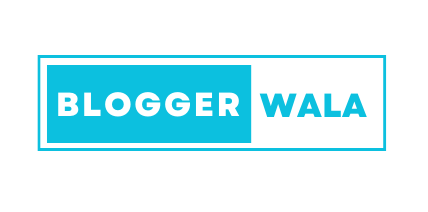In the age of the internet, your brand image is more important than ever. With a few clicks, a potential customer can find out everything they need to know about your company. That’s why it’s so important to make sure that your brand image is one that you’re proud of. But how do you protect your brand image online? Keep reading to find out.
1. Monitoring Your Brand Image Online
The first step in protecting your brand image online is monitoring what is being said about your online reputation management agency.
There are a few different ways to do this:
● The first is to set up Google Alerts for your company name and keywords related to your industry. This will notify you anytime someone mentions you online so that you can take action if necessary.
- You should also regularly check social media, review sites, and forums to see what people are saying about you.
- If you see anything negative, reach out and try to resolve the issue.
- If it’s a valid complaint, take steps to fix the problem and prevent it from happening again in the future.
- If it’s a false accusation or an angry customer who is venting, try to defuse the situation and turn them into a satisfied customer.
Taking steps to monitor and protect your brand image online will go a long way in ensuring that people have a positive opinion of your company.

2. Creating and Maintaining a Positive Brand Image Online
In addition to monitoring your brand image, you also need to take proactive steps to create and maintain a positive one. The best way to do this is by creating high-quality content that accurately represents your brand message and values.
Your website should be well-designed and easy to navigate. It should also be mobile-friendly as more and more people are using their phones and tablets to access the internet. Your content should be original, informative, and engaging. If you’re selling products or services, make sure that the photos and descriptions are accurate so that there are no surprises when people receive their purchase.
You should also make sure that your social media accounts reflect your brand image. Post regularly and interact with your followers so that they get to know the human side of your business. Showcase any awards or accolades that you’ve received, but don’t brag—let your accomplishments speak for themselves.
3. Create a professional website and social media profiles
If you’re looking to establish yourself as a thought leader in your industry, one of the best things you can do is create a professional website and set up social media profiles on popular platforms like LinkedIn, Twitter, and Facebook.
- Your website should be a showcase for your work, with an About page that tells visitors who you are and what you do.
- Your social media profiles should further reinforce your brand, sharing links to your latest blog posts and articles.
- By creating a strong online presence, you’ll be able to reach more people with your thought-provoking content and build a reputation as an expert in your field.
Your brand image is one of the most important aspects of your business—if not the most important aspect.
- A strong brand image can help you attract new customers and keep existing ones happy.
- On the other hand, a weak or negative brand image can do serious damage to your business.
- That’s why it’s so important to take steps to protect your brand image online.
By monitoring what is being said about you online and taking proactive steps to create and maintain a positive brand image, you can ensure that people have a good opinion of your company—no matter what they see when they search for you online.
4. Use high-quality images and branding on all of your online content
In today’s digital world, it’s important to make sure that your online presence is professional and polished.
One way to do this is to use high-quality images and branding on all of your online content. This means using images that are clear and well-lit, and that complement your text rather than competing with it. It also means having a consistent brand identity across all of your platforms, from your website to your social media accounts.
Creating a strong and cohesive online brand will help you to build trust with potential customers and clients, and ultimately grow your business.
5. Stay consistent with your messaging across all channels
Any good marketing campaign will make use of multiple channels in order to reach the widest possible audience. However, it’s important to make sure that your messaging is consistent across all of these channels.
Otherwise, you risk confusing your potential customers and harming your brand. A consistent message helps to create a strong and recognizable brand identity that customers can trust. It also makes it easier for customers to take the next step, whether that’s making a purchase or signing up for your email list.
So if you’re serious about marketing your business, make sure you’re taking a consistent approach. It will pay off in the long run.
6. Respond to customer feedback and complaints promptly and politely
Good customer service is essential to the success of any business. Not only do satisfied customers tend to come back, but they often tell their friends and family about their positive experiences. On the other hand, unhappy customers can do serious damage to a company’s reputation. That’s why it’s important to respond to customer feedback and complaints quickly and politely. When customers feel like their concerns are being heard and addressed, they are more likely to give a company a second chance.
Furthermore, responding promptly shows that a company cares about its customers and is willing to go the extra mile to resolve issues. By taking these steps, businesses can create loyal, lifelong customers.
7. Monitor online reviews and take action if necessary
In today’s digital age, online reviews are more important than ever. A single negative review can deter customers from doing business with you, while a glowing review can attract new business. That’s why it’s so important to keep an eye on your online reviews and take action if necessary.
- The first step is to set up Google Alerts for your business name and key keywords. This way, you’ll be alerted any time someone mentions your business online.
- Then, take some time each day to check your reviews on major sites like Google and Yelp.
- If you see any negative reviews, reach out to the customer directly and try to resolve the issue. And if you see any positive reviews, be sure to thank the customer for their feedback.
By monitoring your online reviews, you can help ensure that your business has a positive reputation online.
8. Choose a memorable and unique name for your business
When it comes to naming a business, there are a few things to keep in mind.
- Unique and relevant: The name should be memorable and unique, but it also needs to be relevant to the products or services you offer.
- User Friendly: It’s also important to choose a name that can be easily pronounced and spelled. With so many factors to consider, it can be tough to choose the right name for your business.
However, taking the time to find a name that accurately reflects your brand will pay off in the long run.
- Remarkable name: A catchy and recognizable name will help customers remember your business and make it easier for them to find you online or in a crowded marketplace.
So if you’re stuck on what to name your business, take some time to brainstorm and consider all of your options. The perfect name is out there – you just have to find it!
9. A bad online reputation can ruin your business
Negative reviews, false information, and cyber bullying can all have a devastating effect on your brand image and bottom line.
Let’s explore the dangers of a bad online reputation and how to protect your brand from harm.
- The first step in protecting your brand is understanding the different ways that a negative reputation can hurt you.
“A study by Forbes found that 80% of businesses had been affected by negative online content. The most common types of damage included lost sales (63%), reduced customer base (58%), and loss of employees (55%). Other consequences included decreased stock prices (47%) and damaged corporate images (42%).”
- In addition to understanding the risks, you also need to be aware of what you can do to mitigate those risks.
There are many steps you can take, including developing a crisis management plan, using SEO and social media marketing techniques to push positive content to the top of search results pages and social media feeds and monitoring your brand for any mention online.
- Finally, it’s important to remember that no one is immune to a bad online reputation. Even the biggest brands in the world can fall, victim, if they’re not careful. So be proactive in protecting your brand image and don’t wait until it’s too late.
Wrapping Up
A strong, positive online presence is more important than ever in today’s digital age. Take the time to protect your brand image and you will be rewarded with increased sales and a better reputation overall. Have you experienced negative consequences from an online attack? Let us know in the comments below!



